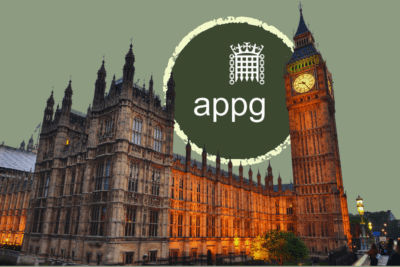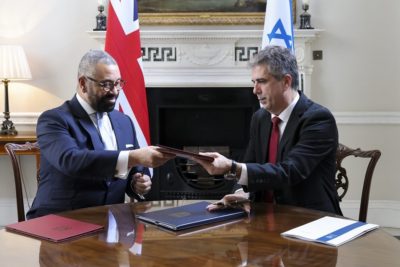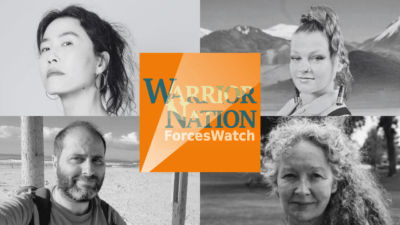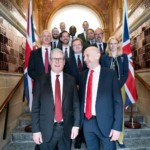The UK military admits it has a racism problem, but can it be decolonised?
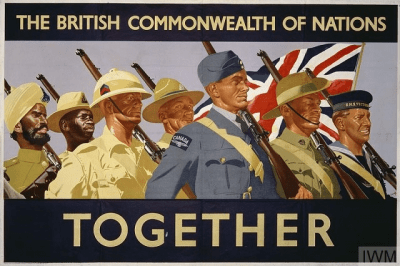
This June an unusual admission emerged from the highest levels of the UK military: Both the head of the military and the Defence Secretary conceded that there is a racism problem in their organisations, and, in the case of the minister, Ben Wallace, that the response had been “woeful”. By July, during an appearance before the Defence Select committee, General Carter appeared to have back-pedalled slightly, framing prejudice in the military as an issue of ‘laddish culture’.
Wallace contributed an article to the Telegraph in which the disparity between woke optics and colonial apologia was writ large. Titled “Increasing diversity is crucial for the future of Britain’s Armed Forces”, yet opening with a reference to the “21 valiant Sikhs taking on 10,000 tribesmen at the Battle of Saragarhi at the end of the 19th century”, the piece seemed to capture the contradictions of reconciling modern military identity with colonial history.
The piece seemed to capture the contradictions of reconciling modern military identity with colonial history.
It seems clear that the military’s statements on diversity are partly, perhaps entirely, about optics and the question of how military institutions wish to be perceived by public opinion. But it is also an unusually frank response. The military usually responds to controversies relating to racism, bullying, criminality and so on, by quoting a policy using standardised statements along the lines of “anyone found breaching our values and standards will be subject to discipline up to and including discharge.” That this time the civilian and military heads of the military (at least in the non-Royal sense) intervened may speak to the impact of a series of scandals in recent years.
Despite enjoying public goodwill and a recruiting boom, the military has been rocked by incidents highlighting a racist internal culture, an institutional racism scandal similar (in character if not in scale) to Windrush, and even the trial of a serving soldier for involvement in Neo-Nazi activity. It has also been recently confirmed that BAME personnel are over-represented in complaints statistics, absent at senior officer rank, and that incidents of race hate were on the rise. The black poster girl for the 2019 recruiting campaign was racially abused on social media by fellow soldiers. The British Army even internally published a guide to spotting far-right extremists, which later found its way into the press.
Decolonising the coloniser
The Black Lives Matter movement in the UK, which parallels the ongoing struggle in the US against police brutality and inequality, has pushed racism to the top of the agenda in 2020. Yet the military appears to have largely escaped censure, and it remains to be seen, even at a time when the idea of decolonising curriculums, institutions and city centres is receiving publicity, whether a military whose identity pivots proudly around its expeditionary past and present, can move beyond optics and towards a process of decolonising itself.
The recent debate on decolonising institutions in the UK tends to focus on education — though the aspect which leads in media coverage is the push for the removal from public spaces and public bodies of statues and other tributes to violent imperialist-racists like Cecil Rhodes. The body of thought behind this goes much deeper; but looking at the debate about how curriculums are formed and whose ideas are given weight in education can be instructive. The School of African and Oriental Studies (SOAS), itself deeply historically entwined with British colonial history, produced a short primer in 2017 to address what is meant by decolonising a curriculum (which can be read here.
But SOAS, despite its colonial past, is today a fairly radical London university, and the British military could certainly benefit from being taught the unvarnished truth about its own history. It is nevertheless hard to see where the political will to introduce such a curriculum would come from. Decolonising any institution in a country built on colonialism and empire, and demonstrably still deeply attached to a revisionist story about what those things entailed, is likely to meet resistance.
It is hard to think of any organisation that would contest a reckoning with those grim facts more strongly than the armed forces, whose foundational myths and imaginary are so entrenched in empire.
But it is hard to think of any organisation that would contest a reckoning with those grim facts more strongly than the armed forces, whose foundational myths and imaginary are so entrenched in empire that the violence involved is still proudly recalled, and barracks are still named after the locations of crushed rebellions. In the case of the British military, the task of decolonising might seem insurmountable.
Colonial past, Imperial present
Colonial slaughters, for example, are embroidered onto the regimental colours of army units (large flags which commemorate battle honours) and looked upon with great pride as part of tribal military identity. Many barracks are named after leading figures of colonial warfare. The latter, we should note, have not yet attracted re-naming campaigns in the way that US military bases named after racist Confederate generals have, despite their obvious connections with racialised violence.
Dalton Barracks, Oxfordshire (named after a key participant at Rorke’s Drift, made famous by the movie ‘Zulu’) and Wellington Barracks, Westminster (named after the infamously reactionary general who cut his teeth in wars of colonisation in India) are two such examples. Tidworth Garrison has barracks named after Jellalabad, Bhurtpore, Alliwal and Delhi — cities and locations the British fought over in India and Afghanistan.
It isn’t an exaggeration to say that the military’s colonial past informs very directly its imperial present.
And this is before we even come close to the current state of things. It isn’t an exaggeration to say that the military’s colonial past informs very directly its imperial present. Only recently more news emerged that the UK had been training Saudi pilots and artillerymen at British bases for the war in Yemen — both former British colonial stomping grounds. There are still UK troops in Afghanistan and Iraq, UK military bases from Belize to Brunei, and a new pivot back east to face an old adversary, China, is underway. Many of the personnel involved are drawn from the egalitarian-sounding Commonwealth: Britain’s former colonies.
Is there an argument that decolonising is likely to happen where the process can do least harm to current British policy? It is one thing to take down a statue or rename a base – and this is certainly appealing optics for liberal-minded activists – but quite another to undermine the organisational cohesion of a military which is still operating at the sharp end of empire. Clearly, changing the names of Jellalabad Barracks, HMS Iron Duke or even Fort Hood in the US, to something more inclusive would be justified. Surely some of it could even prove positive? After all, why should Commonwealth or other BAME soldiers’ children have to endure being born in garrisons named for the conquest of their ancestors?
But all it could ever be is one step in a long process. We must ask what impact a purely aesthetic change would have on the world if the UK soldiers and sailors who live and train in and on these bases and ships remain pinned to a foreign policy in which the primary driver is proximity to US global ambitions, currently operating under the Global Britain re-brand.
If the armed forces are in love with idealised colonial versions of themselves it follows that this is because the country which recruits, trains and deploys them is too.
However, the problem seems much larger. It is a truism to say a nation’s military is a reflection of itself. If the armed forces are in love with idealised colonial versions of themselves it follows that this is because the country which recruits, trains and deploys them is too. This inflects the entirety of UK politics. The sepia tones of Brexit, the ‘Blitz spirit’ invoked as Covid-19 took hold, the horrified cognitive dissonance about ‘destroying our history’ when a slaver statue fell in Bristol, and a subsequent far-right riot in Westminster triggered by BLM’s basic egalitarian demands, all point to a societal unwillingness to contend with our past.
Self-image
If the political will could be mustered to enact these kinds of reforms, what would be left of the British military? How would it function if you were to teach the war machine its own history in all the gritty and grimy detail, replace its mythologies with realities and then adjust the institution along those lines? It isn’t altogether clear if it would even survive such a far-reaching process in anything like its current form. Processes of national and institutional reckoning have been carried out in Germany and Japan in the wake of WW2, but the process was only ever partial, was enforced as the part of a victor’s peace, and addressed the results of relatively brief periods of fascist dictatorship rather than centuries of empire.
Without a national reckoning and the political will to face our colonial past and abandon the violent obligations of a junior partnership with the US, decolonising our military seems unlikely.
Dispelling the British military’s myths about itself, which at a regimental and service level function as a kind of ideological operating system, seems impossible without first addressing where this update might come from. Without a national reckoning and the political will to face our colonial past and abandon the violent obligations of a junior partnership with the US, decolonising our military seems unlikely.
See more: military in society, decolonisation
Like what you read?
> Sign up for our newsletter or blog notifications
> Support our work – from just £2 a month

